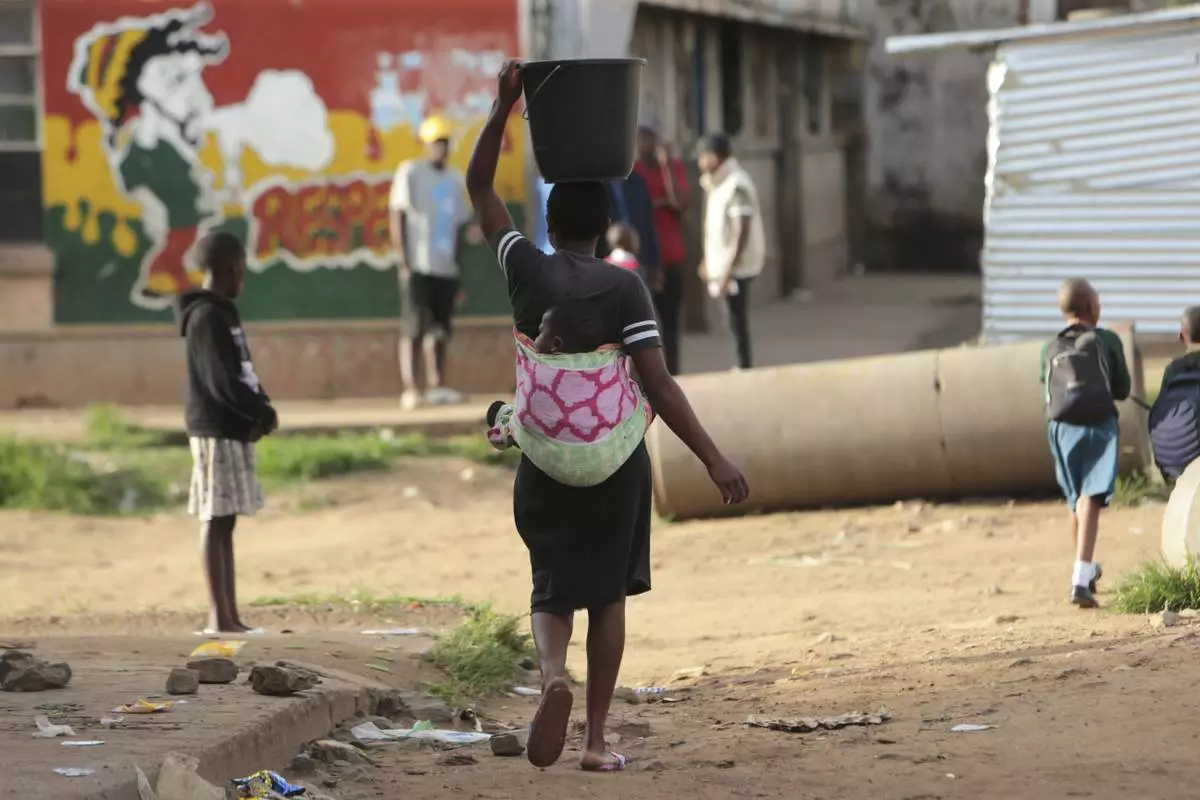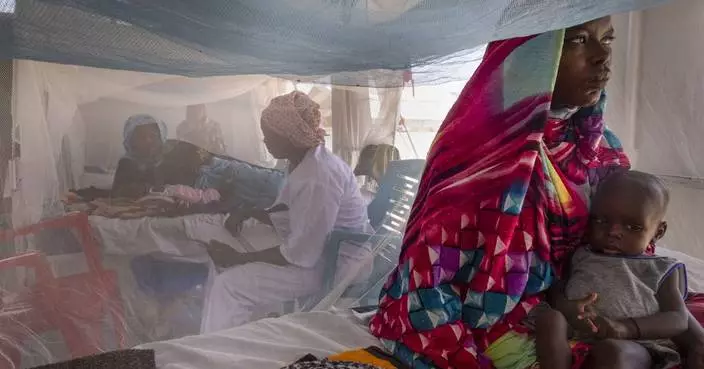About 20 percent of North Korean children are stunted because of malnutrition, and half the children in rural areas are drinking unsafe water, a senior U.N. official visiting the country said.
Much progress has been made compared with 20 years ago, but "significant humanitarian challenges" remain, Mark Lowcock, the undersecretary general for humanitarian affairs, said Wednesday at a news conference in Pyongyang, the capital of North Korea. The U.N. issued a transcript of his remarks.
The United Nations is trying to raise $111 million to meet health, water and sanitation and food security needs for about 6 million people in North Korea. Only 10 percent has been raised so far, Lowrock said, through donations from the Swedish, Swiss and Canadian governments.
U.N. Secretary-General Antonio Guterres urged donors on Thursday to fund the U.N. appeal "to try to address directly the humanitarian aspects that exist in North Korea."

In this Wednesday, July 11, 2018, photo by the North Korean government, Undersecretary General for Humanitarian Affairs Mark Lowcock, third from left, listens to North Korean Health Minister Jang Jun Sang, third from left, during a meeting in Pyongyang, North Korea. The senior U.N. official visiting North Korea is highlighting malnutrition, drinking water and a shortage of medicines as problems facing the country. Independent journalists were not given access to cover the event depicted in this image distributed by the North Korean government. The content of this image is as provided and cannot be independently verified. (Korean Central News Agency/Korea News Service via AP)
The proportion of children affected by stunting, a failure to develop physically and cognitively, has fallen to 20 percent from 28 percent in 2011, but that "is still a high number," Lowrock said.
"Too much of the water is contaminated, which is a cause of disease and threatens the development of too many children," he said, according to the transcript.
Besides malnutrition and water, Lowrock also highlighted a shortage of drugs and medical supplies and equipment. One hospital he visited this week had only enough drugs for 40 of its 140 tuberculosis patients, creating dilemmas for doctors who have to figure out what to do, he said.
Lowrock said that Kim Yong Nam, a senior official, briefed him on the government's commitment to denuclearization and the new focus on economic development as a top priority.
GENEVA (AP) — A new study says an African woman is roughly 130 times more likely to die from pregnancy and childbirth complications than a woman in Europe or North America, the U.N. population fund reported Wednesday as it decried widening inequality in sexual and reproductive health and rights worldwide.
UNFPA's latest “ State of World Population ” report also estimates that nearly 500 maternal deaths per day occur in countries with humanitarian crises or conflicts, and shows that women of African descent in the Americas are more likely to die giving birth than white women.
“Sweeping global gains in sexual and reproductive health and rights over the last thirty years are marred by an ugly truth — millions of women and girls have not benefited because of who they are or where they were born,” the fund said in a statement.
UNFPA executive director Dr. Natalia Kanem said the unintended pregnancy rate has declined by nearly one-fifth since 1990 and the maternal death rate has dropped by more than one-third since 2000.
But “inequalities within our societies and health systems are widening, and we have not adequately prioritized reaching those furthest behind,” she said. Improvements in health care access have mostly benefited wealthier women and members of ethnic groups with better access to care, the fund said.
Kanem hailed some progress: More than 160 countries have passed laws against domestic violence, and “legislation against LGBTQIA+ sexuality” that was once widespread has been on the retreat. Now only one-third of countries have such laws.
While she credited “the world's agreement” that led to such gains, Kanem also warned: “Human reproduction is being politicized. The rights of women, girls and gender diverse people are the subject of increasing pushback."
“And yet, today, that progress is slowing. By many measures, it has stalled completely," she said. “Annual reductions in maternal deaths have flatlined. Since 2016, the world made zero progress in saving women from preventable deaths in pregnancy and childbirth.”
“Health systems today are weak," Kanem added. "They’re tainted by gender inequality, by racial discrimination and by misinformation.”
The fund called for new investment in sexual and reproductive health, as well as improvements in sexuality education, stopping gender-based violence, and “ending unmet need for contraception” — an issue that has driven a wedge in some countries.
Under the term of U.S. President Donald Trump, the United States halted funding for UNFPA largely over concerns about abortion — depriving the fund of tens of millions of dollars over four years.

FILE - A woman carries a her baby and a bucket of water in Harare on April 6, 2020. A new study says an African woman is roughly 130 times more likely to die from pregnancy and childbirth complications than a woman in Europe or North America, the U.N. population fund reported Wednesday, April 17, 2024, as it decried widening inequality in sexual and reproductive health and rights worldwide. (AP Photo/Tsvangirayi Mukwazhi, File)











